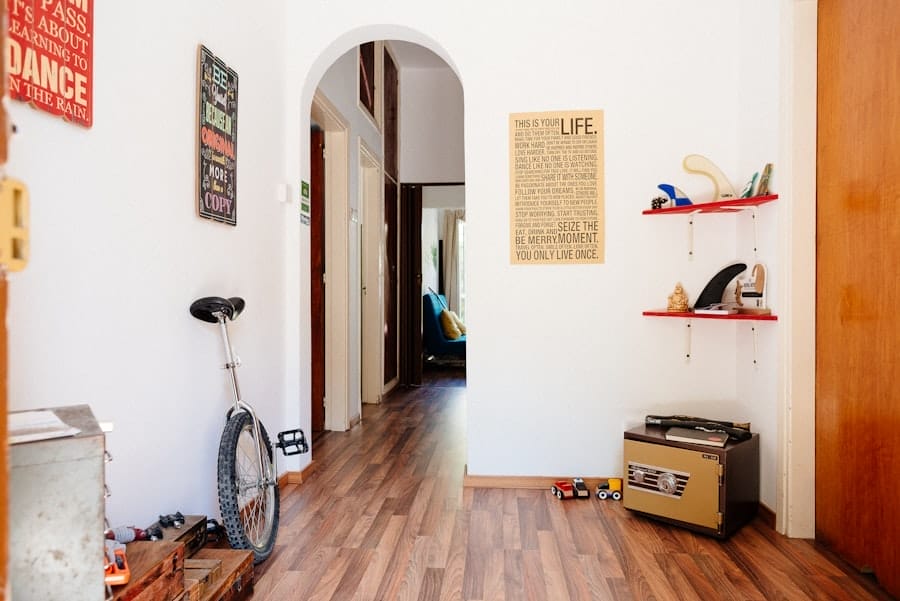Composting is a natural process that transforms organic waste into nutrient-rich soil. It’s an eco-friendly way to recycle kitchen scraps, yard waste, and other biodegradable materials. By composting, you not only reduce the amount of waste that ends up in landfills but also create a valuable resource for your plants and garden.
The process involves the decomposition of organic matter by microorganisms, which break down the materials into humus, a dark, nutrient-dense substance that enriches the soil. To get started with composting, it’s essential to understand the basic components involved. The primary ingredients for composting are “greens” and “browns.” Greens include nitrogen-rich materials like fruit and vegetable scraps, coffee grounds, and grass clippings.
Browns consist of carbon-rich materials such as dried leaves, cardboard, and paper. A balanced mix of these two types of materials is crucial for successful composting. Additionally, moisture and aeration play significant roles in the decomposition process.
Keeping your compost pile moist but not soggy, and turning it regularly to introduce oxygen, will help speed up the breakdown of materials.
Key Takeaways
- Composting is the natural process of recycling organic materials into a rich soil amendment.
- When choosing a compost bin for your apartment, consider size, odor control, and ease of use.
- Select a location for your compost bin that is convenient, well-drained, and receives adequate sunlight.
- Collect materials such as fruit and vegetable scraps, coffee grounds, and eggshells for your compost bin.
- Maintain your compost bin by regularly turning the materials, keeping it moist, and monitoring for any issues.
Choosing the Right Compost Bin for Your Apartment
When living in an apartment, selecting the right compost bin is vital to ensure that your composting efforts are both effective and convenient. There are various types of compost bins available, each designed to suit different living situations. For apartment dwellers, compact bins or worm composters (vermicomposting) are often the best options.
These bins are designed to fit in small spaces and can be kept indoors or on a balcony without taking up too much room. Consider a countertop compost bin for easy access while cooking. These bins allow you to collect kitchen scraps conveniently and can be emptied into your main compost bin later.
If you prefer a more hands-off approach, look into electric composters that can process food waste quickly and efficiently. Regardless of the type you choose, ensure that your compost bin has proper ventilation and drainage to prevent odors and promote healthy decomposition.
Selecting the Right Location for Your Compost Bin
Choosing the right location for your compost bin is crucial for successful composting in an apartment setting. If you have outdoor space, such as a balcony or patio, place your bin in a shaded area to prevent it from drying out too quickly in the sun. If you’re using a worm composter indoors, find a cool, dark spot away from direct sunlight and heat sources.
This will create an ideal environment for the worms to thrive and break down your organic waste. If outdoor space is limited or non-existent, consider using a small indoor composter that can fit under your sink or in a closet. Ensure that the location allows for easy access so you can add materials regularly without hassle.
Additionally, keep in mind that some compost bins may produce odors or attract pests if not maintained properly, so placing them in a well-ventilated area can help mitigate these issues.
Collecting the Right Materials for Your Compost Bin
Gathering the right materials is essential for creating a successful compost bin. Start by collecting kitchen scraps such as fruit and vegetable peels, coffee grounds, eggshells, and stale bread. These items are rich in nitrogen and will help kickstart the decomposition process.
However, be mindful of what you add; avoid including meat, dairy products, and oily foods as they can attract pests and create unpleasant odors. In addition to kitchen scraps, you can also incorporate browns into your compost bin. Dried leaves, shredded newspaper, cardboard, and straw are excellent sources of carbon that will balance out the nitrogen-rich greens.
Aim for a ratio of about 2:1 browns to greens to create an optimal environment for decomposition. As you collect materials, consider keeping a small container on your countertop to make it easier to gather scraps throughout the day.
Maintaining Your Compost Bin
Maintaining your compost bin is key to ensuring that it functions effectively and produces high-quality compost. Regularly turning your compost helps aerate the materials and speeds up decomposition. If you’re using a traditional bin outdoors, use a pitchfork or shovel to mix the contents every few weeks.
For indoor bins or worm composters, gently stir the materials with a hand tool to keep everything well-aerated. Moisture levels are also crucial for maintaining your compost bin. The ideal moisture content should feel like a damp sponge—moist but not dripping wet.
If your compost appears too dry, add some water or more greens; if it’s too wet, incorporate more browns to absorb excess moisture. Additionally, keep an eye out for any unpleasant odors or signs of pests; these can indicate that something is off in your composting process and may require adjustments.
Troubleshooting Common Issues with Apartment Composting
Even with careful planning and maintenance, you may encounter some common issues while composting in an apartment setting. One frequent problem is odor. If your compost smells bad, it could be due to an imbalance of greens and browns or insufficient aeration.
To remedy this, add more carbon-rich materials and turn the pile more frequently to introduce oxygen. Another issue you might face is attracting pests like fruit flies or rodents. To prevent this, ensure that you’re not adding any meat or dairy products to your compost bin.
Additionally, keep your bin covered when not in use and store it in a cool area away from direct sunlight. If you notice pests despite these precautions, consider using traps or natural deterrents like vinegar or essential oils to keep them at bay.
Using Your Compost in Your Apartment
Once your compost has fully decomposed into dark, crumbly material, it’s time to put it to good use! You can use your homemade compost in various ways within your apartment. If you have houseplants or a small indoor garden, mix the compost with potting soil to provide essential nutrients for your plants.
This will help them thrive and grow healthier over time. If you don’t have plants but want to share your bounty with others, consider giving some of your compost away to friends or neighbors who garden. Many people appreciate receiving high-quality compost for their outdoor spaces.
Additionally, if you have access to community gardens or local gardening groups, they may welcome donations of homemade compost to enrich their soil.
Tips for Apartment Dwellers to Reduce Food Waste
Reducing food waste is an essential part of sustainable living, especially in an apartment where space may be limited. Start by planning your meals ahead of time; this will help you buy only what you need and minimize excess food that may go bad before you have a chance to use it. Creating a shopping list based on your meal plan can also help you stay focused while grocery shopping.
Another effective strategy is to store food properly to extend its shelf life. Use airtight containers for leftovers and keep fruits and vegetables in designated areas of your fridge to prevent spoilage. Additionally, consider freezing surplus food items that you cannot consume immediately; this way, you can enjoy them later without waste.
By implementing these practices alongside your composting efforts, you’ll contribute significantly to reducing food waste while living sustainably in your apartment. In conclusion, apartment composting is not only feasible but also rewarding for those looking to reduce waste and enrich their living environment. By understanding the basics of composting, choosing the right bin and location, collecting appropriate materials, maintaining your system effectively, troubleshooting common issues, utilizing your finished compost wisely, and adopting strategies to minimize food waste, you can make a positive impact on both your home and the planet.
Embrace this sustainable practice and enjoy the benefits it brings!
If you’re looking to start a compost bin in your apartment to reduce waste and help the environment, you may also be interested in learning about the top freelancing sites for extra income. Freelancing can be a great way to supplement your income while also being environmentally conscious. Check out this article on
Share Article















